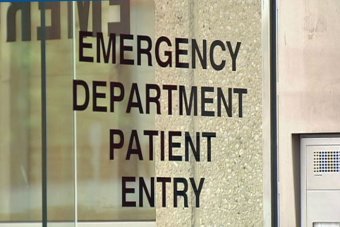Medical staff at the Royal Hobart Hospital have been urged by management to speed up the patient discharge process to alleviate pressure in the emergency department.
In an email sent today and obtained by the ABC, staff at the hospital were told the situation within the department was worsening.
“The ED (emergency department) is at capacity and the situation is getting worse,” the email read.
“Consultants, wherever possible, can you please review potential discharges.”
It encouraged consultants, registrars, residents and interns to “where possible” review “probable discharges”.
But chief executive officer of the Tasmanian Health Service, Dr David Alcorn, distanced himself from the email.
“I think it is of concern that an individual has caused this email to be sent out,” he said.
“Indeed, it’s not the sort of email that our patient flow group has sent out. So I think whoever has sent it does need to review their language.
“There is no way in the world that anyone should think it’s important to discharge patients ahead of quality of care.”
Dr Alcorn said leaking the email to media was not helpful to patients.
“There are regular channels to go through. There’s an established escalation plan. My advice to anyone in the Royal Hobart Hospital is to use it,” he said.
Email ‘highlights ongoing issues at RHH’
Dr Frank Nicklason from the Medical Staff Association at the Royal said the email highlighted ongoing problems.
“When there is a rapid turnover there is the potential for people who are under stress to make more mistakes or to lose their normal empathetic approach to patient care,” he said.
“That’s not good for the doctors, because it’s not how they like to practice, and their families.
“The [Royal] emergency department has 40 per cent of the state’s public emergency department beds and the Royal Hobart Hospital has 40 per cent of the public overnight stay beds, so there is a deficit there in beds.
“It creates more tension and stress to get people home quickly, particularly when those people are seen as being potentially frail or vulnerable.”

